- Home
- James Hadley Chase
Just Another Sucker Page 2
Just Another Sucker Read online
Page 2
The previous day, growing desperate, I had tried to find a temporary job — anything that would bring me in a little money.
After tramping around most of the day, I came home still empty handed. I was too well known in Palm City to be offered a menial job. The guys who wanted a man were embarrassed when they saw me.
‘Aw, Mr. Barber, you’re kidding,’ they said to me. ‘This is no job for you.’
I hadn’t the guts to tell them how flat broke I was, and they were relieved when I made a joke and left.
‘What are you thinking about, Harry?’ Nina asked, rolling over on her side to look at me.
‘Nothing… I was dozing.’
‘You’re worrying, but you mustn’t. We’ll make out. We can get along fine on sixty a week. We’re not going to starve. You must be patient. The right job will come along.’
‘And while I’m waiting for the right job to come along, I will have to live on you,’ I said. ‘Well that’s wonderful. I’ll enjoy it.’
She lifted her head to stare at me. Her dark eyes anxious.
‘We’re partners, Harry. When you get a job, I’ll retire. As you haven’t a job for the moment, then I do the work. That’s the way a partnership should be.’
‘Thanks for telling me.’
‘Harry… you’re worrying me. You may not realise it, but you have changed so much. You’re so hard and bitter now. You must try to forget. We have our lives to lead together, and this attitude of yours…’
‘I know.’ I got out of bed. ‘I’m sorry about it. Maybe if you had spent three and a half years in jail, you might feel the same way as I do. I’ll fix the coffee. At least, that’s something I can do these days.’
All this that I’m telling you about happened two years ago. Looking back on it, and taking it now in its right perspective, I realise I was a pretty weak kind of character. I can see I had let this frame-up and the prison sentence get on top of me. I wasn’t tough and bitter. I was eaten up with self-pity.
If I had had what it takes, I would have got rid of the bungalow, and with Nina, I would have gone some place where I wasn’t known and made a new career for myself. Instead I went around looking for a job that didn’t exist for me in this town and making a martyr of myself.
For the next ten days I went around pretending to look for the non-existent job. I made out to Nina that I was hunting all day, but it was a lie. After making a couple of calls and being turned down, I sought sanctuary in the nearest bar.
When I had worked as a columnist, I had never been much of a drinker, but now, I began really to hit the bottle. Whisky was the one magic escape for me. With five or six whiskies inside me, nothing seemed to matter. I didn’t give a damn if I had a job or not, I could return home and watch Nina slave at her art work without feeling like a pimp.
With a load on, I even found it was easy to lie to her.
‘I was talking to a guy this morning, and it looks as if we can make a deal,’ I told her. ‘He wants me to write a series of articles around his hotel, but first he has to talk to his partner. If it jells, it’ll pay over three hundred a week.’
There was no guy, no partner and no hotel, but the lie kept me important, and it was essential to my ego that Nina should still think I was important. Even when I was forced to borrow ten dollars from her, I still tried to save face by telling her before long, I would be in the money.
But continual lies grow stale, and after a while, I began to realise that when I told Nina a lie, she knew I was lying. She pretended to believe me, and that’s where she went wrong. She should have called my bluff, and maybe I would have snapped out of this pipe dream of mine, but she didn’t, so I went on drinking, went on lying and went on getting nowhere.
Then one afternoon while I was sitting in a bar facing the beach, this thing I want to tell you about started.
The time was a little before six o’clock. I was pretty sloshed. I had knocked back eight whiskies and was looking forward to the ninth.
The bar was small and quiet and not well patronised. I liked it. I could sit in a corner undisturbed and look out of the open window and watch the people enjoying themselves on the beach. I had been a regular customer now for five days. The barman, a big, fat, bald-headed guy, knew me. He seemed to understand my need for whisky. As soon as I finished one drink, he brought me another.
There weren’t many drinkers in the bar. From time to time a man or a woman would come in, shoot a drink down their throats, hang around for a few minutes, then leave. They were like me — without an anchor, lonely and trying to kill time.
In a corner, near my table and out of sight of the bar was a telephone booth. There was a pretty regular traffic to the booth. People came in, made a call, then went out: men, women, boys and girls. The booth was the busiest place in the bar.
While I sat drinking, I watched the booth: it gave me something to do. I wondered a little drunkenly who these people were who shut themselves in behind the glass panelled door: who they were talking to.
I watched their expressions. Some of them smiled as they talked: some got worked up: some of them looked as if they were telling unconvincing lies the way I had been telling unconvincing lies. It was like watching a stage play.
The barman brought me my ninth whisky and put it on the table. This time he stood by me, not moving, and I knew it was time to settle the check. I gave him my last five-dollar bill. He grinned sympathetically as he handed me the change. The grin told me he knew a drunk when he saw one. I felt like getting up and driving my fist into his fat, stupid face, but I took the change and as I started to look for a small coin to tip him, his grin widened and he went back to the bar.
It was at this moment, when I realised he knew the kind of lush he was selling liquor to, that I felt pretty ashamed of myself. I felt so goddamed ashamed, I could have walked right out of the bar and under a fast moving car, but that kind of an end took guts, and I had left my guts in Cell 114. I wasn’t walking in front of any fast moving car. I was just going to sit here and drink myself silly. It was better and easier that way.
Then a woman came into the bar. She walked to the telephone booth and shut herself in.
She was wearing a close-fitting canary coloured sweater and white slacks. She had on bottle green sun goggles, and she carried a yellow and white plastic handbag.
She immediately attracted my attention because she had solid, heavy hips and her slacks were tight fitting. As she walked to the telephone booth the movement of her derrière was something that even non-drinking and respectable men would have stared at.
I was a drinking, non-respectable man, so I stared without any inhibition. When I had lost sight of this portion of her body as she shut the telephone booth door, I lifted my eyes to look at her face.
She would be about thirty-three: a blonde with clear cut, somewhat cold features, but as a general ensemble she was very, very attractive to any male.
I drank half my ninth whisky and watched her use the telephone. I couldn’t tell if her conversation was a happy one or not. The sun goggles made speculation impossible, but she was quick and to-the-point. She was in the booth under a minute flat. She came out and walked past me, without looking at me. I stared at her straight back and the heavy curve of her hips for a brief, pleasant couple of seconds before she let the door swing behind her.
I was drunk enough to think that if I had been a single man, she would be the one I would have gone for. A woman, I reasoned to myself, with a figure like that, with her poise and looks must be sensational in bed. If she wasn’t, then life was even a bigger illusion that I had imagined it to be.
I wondered who she was. Her clothes were expensive. The yellow and white handbag wasn’t something you picked up in a junk shop.
The yellow and white handbag.
She had taken it into the telephone booth with her, but I couldn’t remember her coming out with it.
I was now so sloshed, thinking became an effort. I screwed up my face, trying to remember.
She had gone into the booth with the bag in her right hand. I was certain she had come out of the booth without anything in either hand.
I finished my whisky, then with a shaky hand, I lit a cigarette. So what? I said to myself. I had probably not noticed the bag when she came out.
Suddenly the bag became important to me. It became important because I wanted to prove to myself I wasn’t as plastered as I thought I was.
I got unsteadily to my feet and walked to the telephone booth. I opened the door and there on the shelf was the handbag.
Well, you old sonofabitch, I said to myself, you’re as sober as a judge. You saw at once she had forgotten her bag. You’re carrying your liquor like… like… well, you’re carrying your liquor.
The thing to do, I went on, talking to myself, is to look in the bag and find out who she is. Then you take the bag, telling the barman she has left it in the telephone booth — you must tell him otherwise if you are spotted walking down the street with a lady’s yellow and white handbag, some cop might pinch you — then when you have told the barman, you’ll take the bag to her address and who knows — she might reward you with something more than a kiss — who knows?
That’s how drunk I was.
So I stepped into the booth and closed the door. I picked up the handbag and opened it. As I did so, I looked over my shoulder to make sure no one was watching me. Ex-jailbird Barber: that was me: taking no chances; always on the look out for trouble.
No one was watching me.
I turned my back which was broad enough to fill nearly all the booth, and picked up the telephone receiver; a smart move this — and resting the receiver against my ears, I examined the contents of the bag.
There was a gold cigarette case and a gold lighter. There was a diamond clip which could have been worth fifteen hundred dollars if not more. There was a driving licence. And there was a fat roll of bills and the top one was a fifty. If the others matched it, there could be close on two thousand dollars in that nice looking, juicy roll.
The sight of all that money brought me out in a sweat.
The cigarette case, the lighter and the diamond clip didn’t interest me. All three could be traced, but I found myself being too interested in this fat roll of money.
With this money in my pocket, I wouldn’t have to ask Nina for five bucks tomorrow morning. I wouldn’t have to ask her for money neither tomorrow nor the day after, nor any time. I would be able to find a job by the time I had used up this money. Even if I kept on drinking, day in and night out.
I was plastered. I was not only plastered but I was demoralised. If this rich woman was so dumb as to leave the money right here, then she deserved to lose it.
Then far away, a faint voice that was my own said to me, ‘Have you gone crazy? It’s stealing! If they catch you with your record, you’ll go away for ten years. Put the goddam bag down and get the hell out of here! What’s the matter with you? Do you want ten more years in a cell?’
But the voice was too far away to make an impression. I wanted that money. It was easy. All I had to do was to take it out of the bag, put it in my pocket, close the bag, put it back on the shelf and fade away.
The barman couldn’t see me. There was a continual stream of people going in and out of the booth.
Anyone could have taken it — anyone.
The money was there — probably not two thousand dollars, but getting on that way.
I wanted it.
I needed it.
So I took it.
I dropped the roll into my pocket and shut the bag. My heart was thumping and I felt what I was — a thief. There was a tiny mirror above the telephone. I saw a movement in it. I still had the bag in my hand. I looked in the mirror.
She was right there behind me, watching me. Her sun goggles reflected the light so they made two little green spots in the mirror.
But she was there.
How long had she been there I didn’t know.
But she was there.
CHAPTER TWO
I
When you get a shock that squeezes your heart, paralyses your brain and turns your body cold, you die a little.
I stood looking into the mirror on the wall of the booth, the handbag gripped in my hand, staring at the two enormous green pieces of glass that formed her sun goggles, and I died a little.
I became suddenly sober. The whisky fumes that had clouded my brain went away: it was like a razor, slitting through gauze.
She would call the barman and he would find the roll of money in my pocket, then he would call a cop. Once the cop arrived, I would be a parcel of meat to be handled safely and surely back into a cell, but not for four years: it would be a much, much longer sentence this time.
Fingers tapped lightly on the glass door of the booth. I put the handbag on the shelf and turned, then I opened the door.
The woman moved slightly to one side to let me have room to come out.
‘I think I left my handbag…’ she said.
‘That’s right,’ I said. ‘I was going to give it to the barman.’
Maybe the best thing I could do was to push past her and get onto the street before she had time to open the bag and find the money missing. Once I got on the street I could throw the money away, then it would be her word against mine.
I started to make the move, then stopped. The barman had come from behind the counter and was blocking the exit. He was looking puzzled, and he came forward, still keeping his vast bulk between me and the door.
‘Is this guy annoying you, lady?’ he said to the woman.
She turned her head slowly. I had a feeling that whatever the emergency she would always remain poised and unruffled.
‘Why, no. I stupidly left my handbag in the booth. This gentleman was going to give it to you to keep for me.’
The barman looked suspiciously at me.
‘Is that a fact?’ he said. ‘Well, okay, if that’s what he says.’
I just stood there like a dummy. My mouth was so dry I couldn’t have spoken even if I had known what to say.
‘Anything of value in the bag, lady?’ the barman asked.
‘Oh, yes. It was stupid of me to have forgotten it.’
She had a clear, hard voice. I wondered vaguely if her eyes, hidden behind the sun goggles, were as hard.
‘Hadn’t you better check to see if anything is missing?’ the barman said.
‘I suppose I’d better.’
I wondered if one quick punch would get me out of this. I decided it wouldn’t. The barman looked as if he had taken a lot of quick punches in his day, and he looked as if the diet had agreed with him.
She moved past me into the booth and picked up the bag.
I watched her, my heart scarcely beating. She stepped out of the booth, opened the bag and looked inside. With slim fingers, the nails painted silver, she moved the contents of the bag about, her face expressionless.
The barman breathed heavily. He kept glancing at me and then at her.
She looked up.
Here it comes, I thought. In half an hour from now, I’ll be in a cell.
‘No, there’s nothing missing,’ she said. She turned her head slowly to look directly at me. ‘Thank you for taking care of it for me. I’m afraid I am very careless with my things.’
I didn’t say anything.
The barman beamed.
‘Okay, lady?’
‘Yes, thank you. I think we might celebrate.’ She looked at me. The round green globes of her goggles told me nothing. ‘May I buy you a drink, Mr. Barber?’
So she knew who I was. It wasn’t all that surprising. The day I had been released, the Herald had run a photograph of me, saying that I had been released from jail after spending a four-year stretch for a manslaughter charge. They hadn’t forgotten to mention that I had been drunk at the time. It had been a good photograph and it had been on the front page where no one who read the Herald could miss it. Just a sweet trick that Cubitt would dream up.
&nb
sp; There was a steely quality in her voice that told me it might be healthier for me to accept the invitation, so I said, ‘Well, it isn’t necessary, but thanks.’
She turned to the barman.
‘Two highballs with lots of ice.’
She moved past him to the table when I had been sitting and sat down.
I sat down opposite her.
She opened her handbag, took out the gold cigarette case, opened it and offered it to me.
I took a cigarette. She took one too. She lit mine with the gold lighter, then her own: by this time the barman had come back with two highballs. He put them on the table, then went away.
‘How does it feel, Mr. Barber, to be out of prison?’ she asked, letting smoke drift down her nostrils.
‘All right.’
‘I see you are no longer a newspaper man.’
‘That’s correct.’
She tilted the high glass, making the ice cubes tinkle and she regarded the glass as if it interested her more than I did.
‘I’ve seen you come in here quite often.’ She waved silver nails to the window. ‘I have a beach cabin across the way.’
‘That must be nice for you.’
She picked up her drink and sipped a little of the highball.
‘Do these frequent visits to this bar mean you haven’t fixed up a job yet?’
‘That’s right.’
‘Do you hope to get fixed up pretty soon?’
‘That’s right.’
‘It can’t be easy, of course.’
‘That’s right.’
‘If employment was offered to you, would you be interested?’
I frowned at her.
‘I don’t get this. Are you offering me employment?’
‘It is possible. Would you be interested?’
I reached for the highball, then changed my mind. I had had more than enough to drink.
‘Doing what?’
‘It would be very well paid, very confidential and with a small element of risk. Would that worry you?’
‘You mean it would be illegal?’
‘Oh no… it wouldn’t be illegal… nothing like that.’

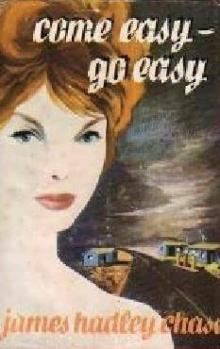 Come Easy, Go Easy
Come Easy, Go Easy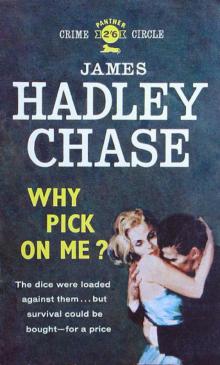 Why Pick On ME?
Why Pick On ME?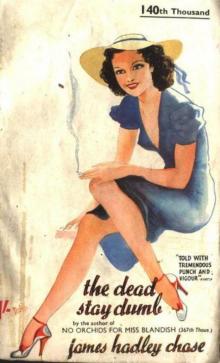 The Dead Stay Dumb
The Dead Stay Dumb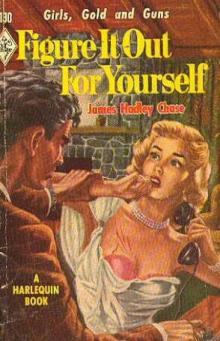 Figure it Out For Yourself
Figure it Out For Yourself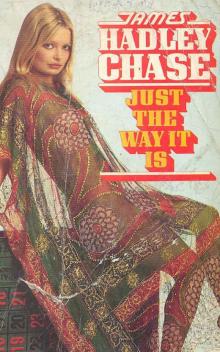 1944 - Just the Way It Is
1944 - Just the Way It Is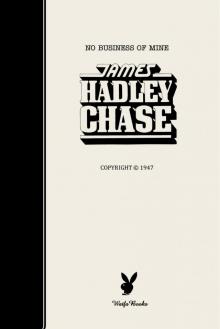 No Business Of Mine
No Business Of Mine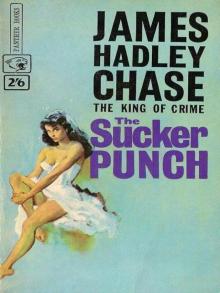 1953 - The Sucker Punch
1953 - The Sucker Punch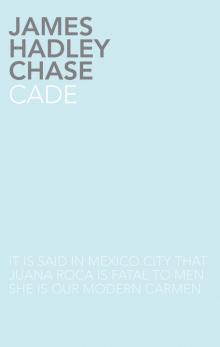 Cade
Cade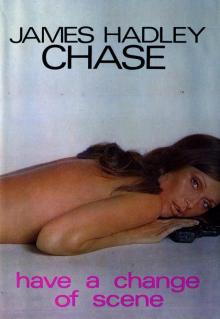 1973 - Have a Change of Scene
1973 - Have a Change of Scene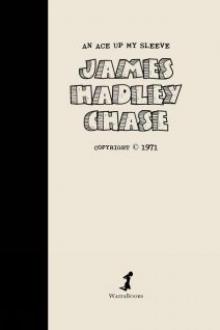 An Ace up my Sleeve
An Ace up my Sleeve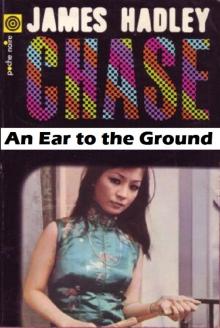 1968-An Ear to the Ground
1968-An Ear to the Ground 1950 - Figure it Out for Yourself
1950 - Figure it Out for Yourself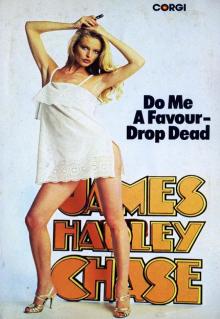 1976 - Do Me a Favour Drop Dead
1976 - Do Me a Favour Drop Dead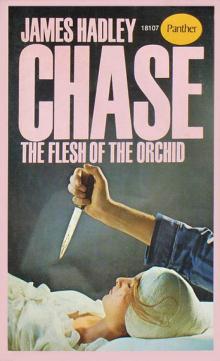 The Flesh of The Orchid
The Flesh of The Orchid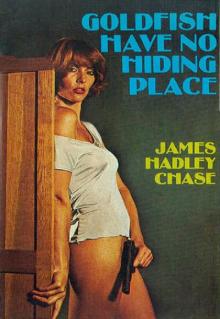 1974 - Goldfish Have No Hiding Place
1974 - Goldfish Have No Hiding Place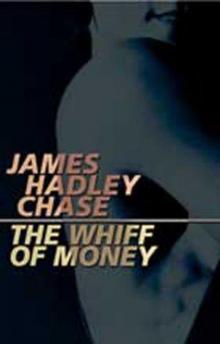 Whiff of Money
Whiff of Money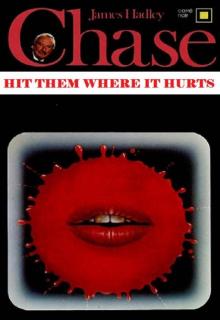 1984 - Hit Them Where it Hurts
1984 - Hit Them Where it Hurts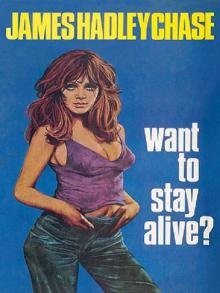 1971 - Want to Stay Alive
1971 - Want to Stay Alive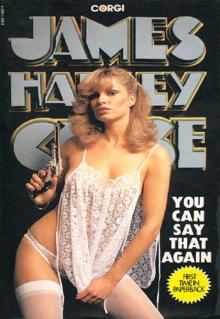 1980 - You Can Say That Again
1980 - You Can Say That Again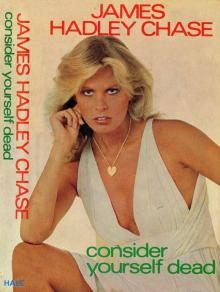 1978 - Consider Yourself Dead
1978 - Consider Yourself Dead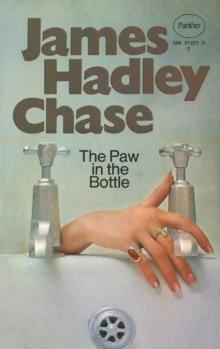 The Paw in The Bottle
The Paw in The Bottle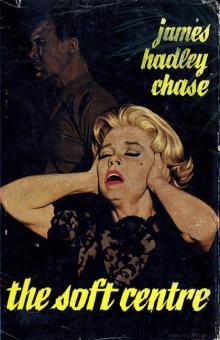 Soft Centre
Soft Centre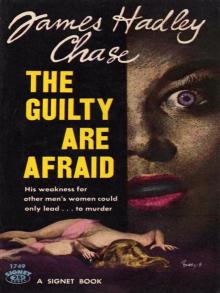 The Guilty Are Afraid
The Guilty Are Afraid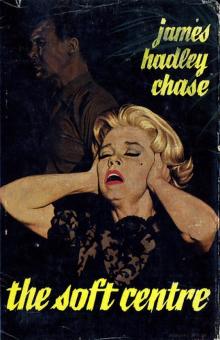 The Soft Centre
The Soft Centre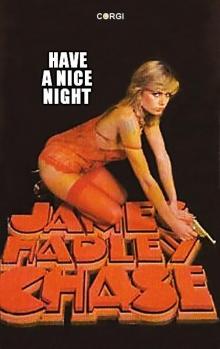 Have a Nice Night
Have a Nice Night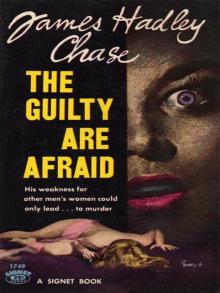 1957 - The Guilty Are Afraid
1957 - The Guilty Are Afraid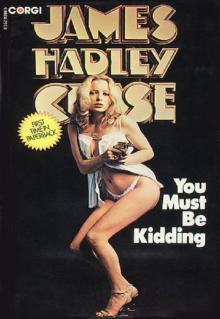 1979 - You Must Be Kidding
1979 - You Must Be Kidding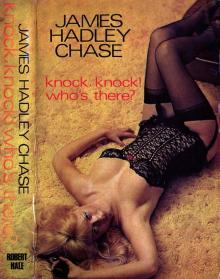 Knock, Knock! Who's There?
Knock, Knock! Who's There?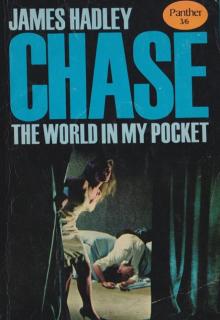 1958 - The World in My Pocket
1958 - The World in My Pocket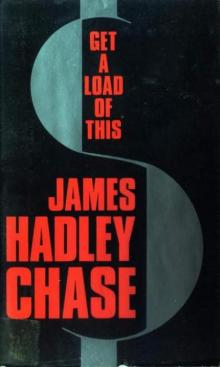 Get a Load of This
Get a Load of This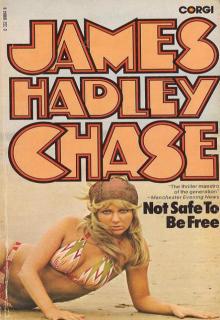 1958 - Not Safe to be Free
1958 - Not Safe to be Free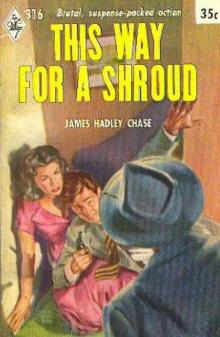 This Way for a Shroud
This Way for a Shroud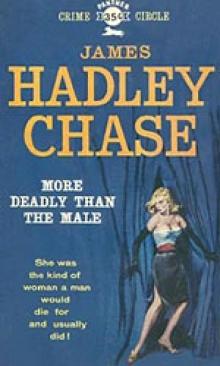 More Deadly Than the Male
More Deadly Than the Male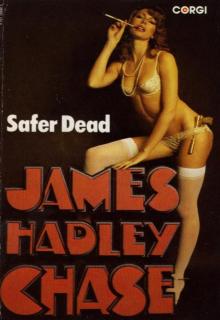 Safer Dead
Safer Dead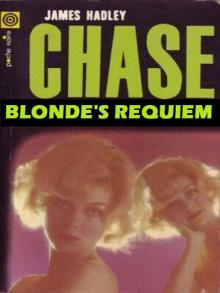 1945 - Blonde's Requiem
1945 - Blonde's Requiem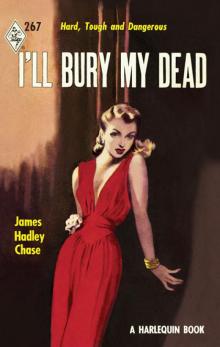 I'll Bury My Dead
I'll Bury My Dead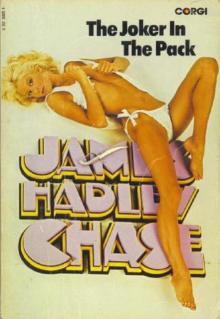 1975 - The Joker in the Pack
1975 - The Joker in the Pack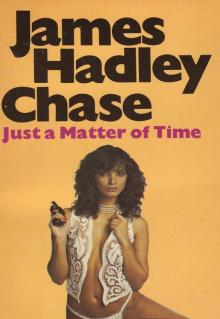 1972 - Just a Matter of Time
1972 - Just a Matter of Time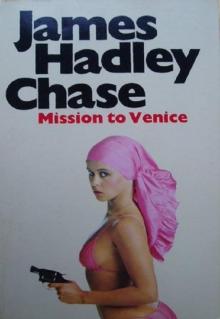 1954 - Mission to Venice
1954 - Mission to Venice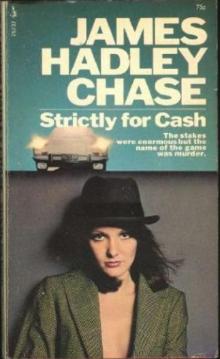 Strictly for Cash
Strictly for Cash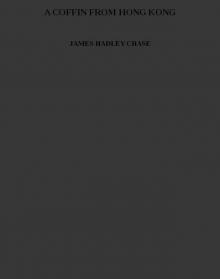 A COFFIN FROM HONG KONG
A COFFIN FROM HONG KONG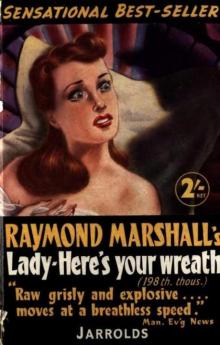 Lady—Here's Your Wreath
Lady—Here's Your Wreath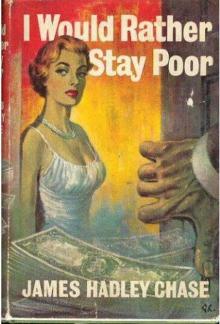 I Would Rather Stay Poor
I Would Rather Stay Poor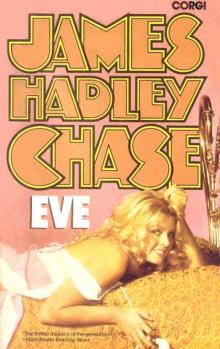 Eve
Eve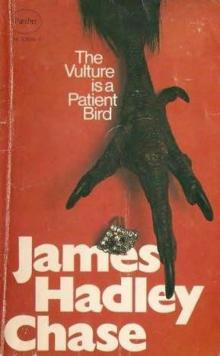 Vulture Is a Patient Bird
Vulture Is a Patient Bird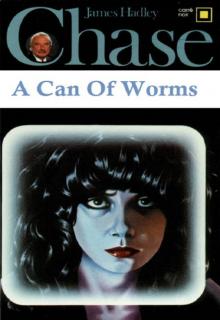 1979 - A Can of Worms
1979 - A Can of Worms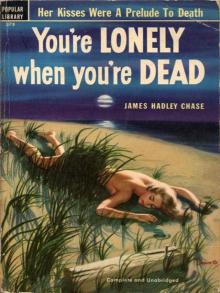 1949 - You're Lonely When You Dead
1949 - You're Lonely When You Dead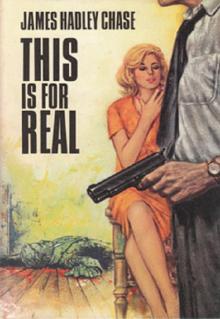 1965 - This is for Real
1965 - This is for Real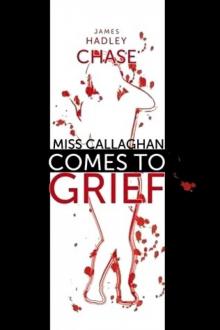 (1941) Miss Callaghan Comes To Grief
(1941) Miss Callaghan Comes To Grief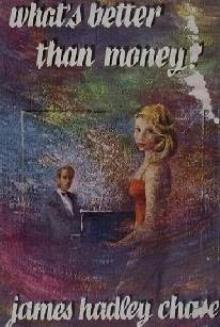 What`s Better Than Money
What`s Better Than Money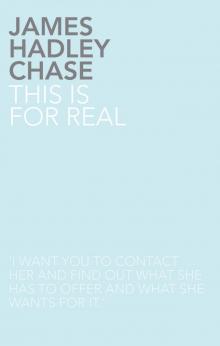 This is For Real
This is For Real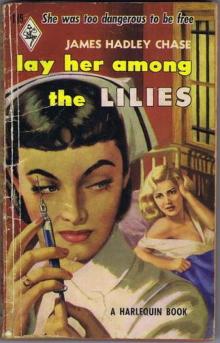 Lay Her Among the Lilies vm-2
Lay Her Among the Lilies vm-2 Knock Knock Whos There
Knock Knock Whos There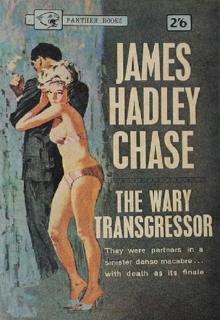 1952 - The Wary Transgressor
1952 - The Wary Transgressor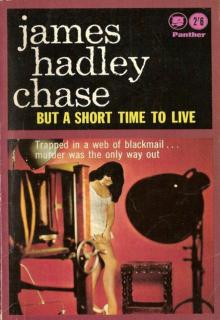 1951 - But a Short Time to Live
1951 - But a Short Time to Live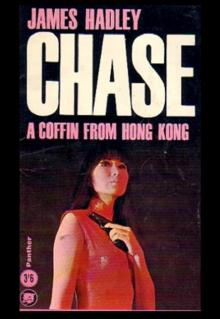 1962 - A Coffin From Hong Kong
1962 - A Coffin From Hong Kong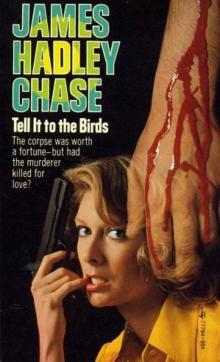 Tell It to the Birds
Tell It to the Birds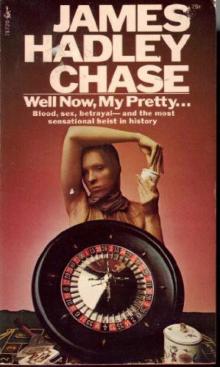 Well Now, My Pretty…
Well Now, My Pretty…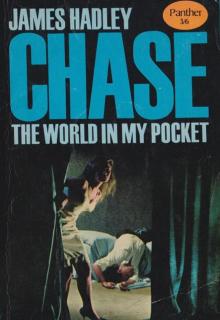 The World in My Pocket
The World in My Pocket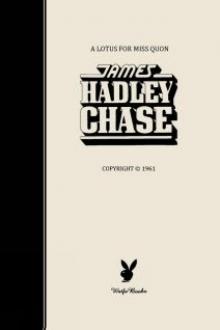 A Lotus for Miss Quon
A Lotus for Miss Quon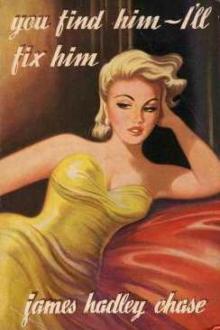 You Find Him, I'll Fix Him
You Find Him, I'll Fix Him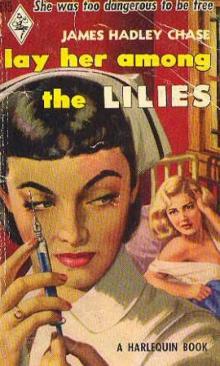 Lay Her Among The Lilies
Lay Her Among The Lilies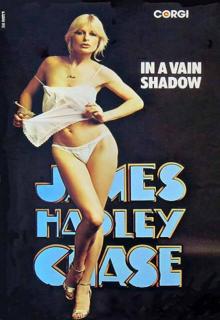 1951 - In a Vain Shadow
1951 - In a Vain Shadow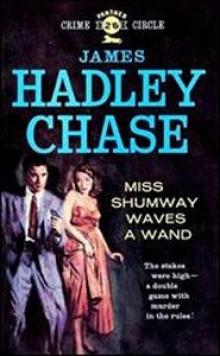 Miss Shumway Waves a Wand
Miss Shumway Waves a Wand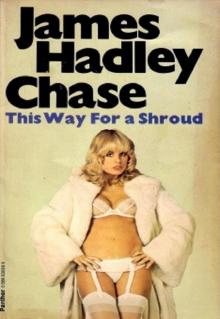 1953 - This Way for a Shroud
1953 - This Way for a Shroud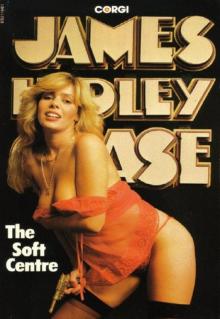 1964 - The Soft Centre
1964 - The Soft Centre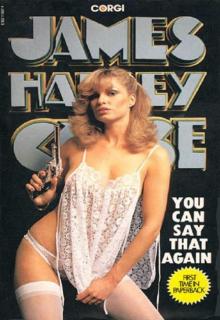 You Can Say That Again
You Can Say That Again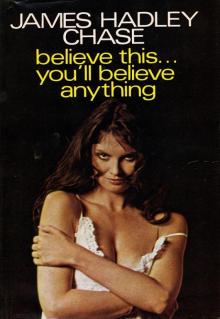 1975 - Believe This You'll Believe Anything
1975 - Believe This You'll Believe Anything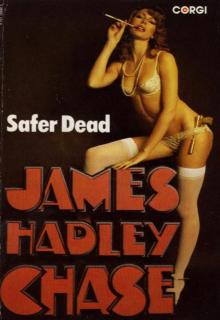 1954 - Safer Dead
1954 - Safer Dead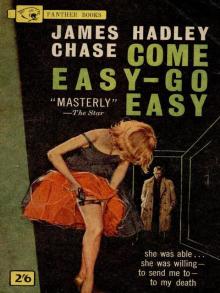 1960 - Come Easy, Go Easy
1960 - Come Easy, Go Easy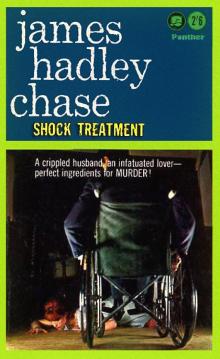 Shock Treatment
Shock Treatment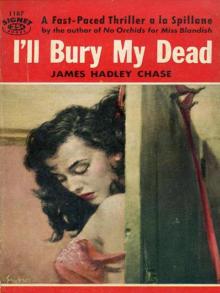 1953 - I'll Bury My Dead
1953 - I'll Bury My Dead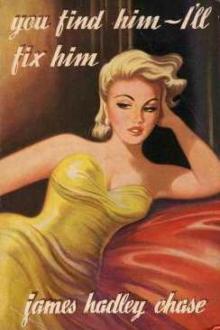 You Find Him – I'll Fix Him
You Find Him – I'll Fix Him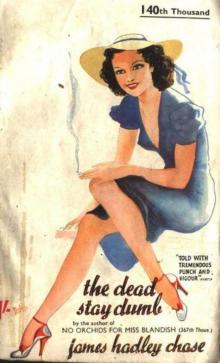 Dead Stay Dumb
Dead Stay Dumb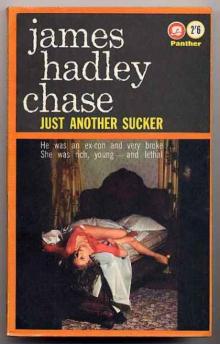 Just Another Sucker
Just Another Sucker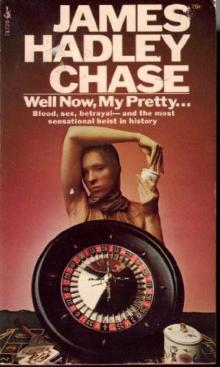 Well Now My Pretty
Well Now My Pretty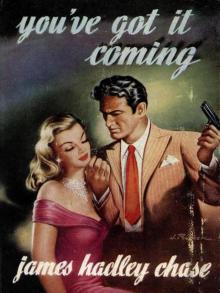 You've Got It Coming
You've Got It Coming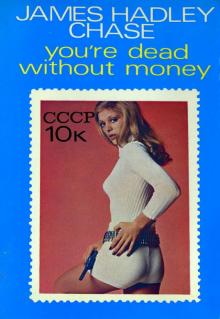 1972 - You're Dead Without Money
1972 - You're Dead Without Money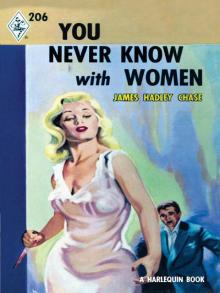 1955 - You Never Know With Women
1955 - You Never Know With Women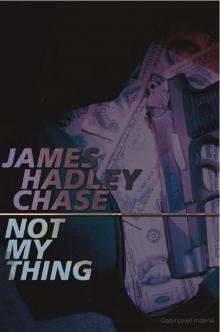 Not My Thing
Not My Thing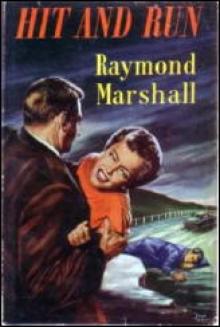 Hit and Run
Hit and Run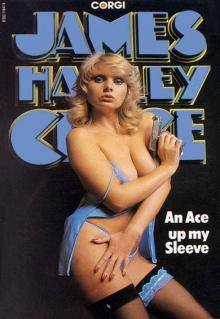 1971 - An Ace Up My Sleeve
1971 - An Ace Up My Sleeve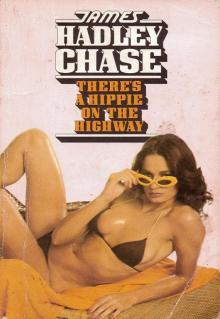 1970 - There's a Hippie on the Highway
1970 - There's a Hippie on the Highway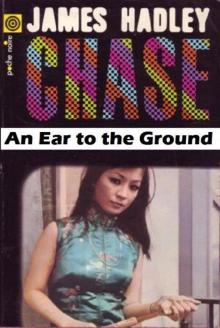 1968 - An Ear to the Ground
1968 - An Ear to the Ground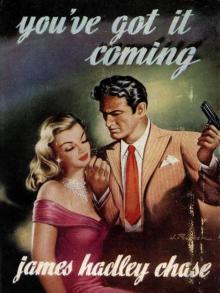 1955 - You've Got It Coming
1955 - You've Got It Coming 1963 - One Bright Summer Morning
1963 - One Bright Summer Morning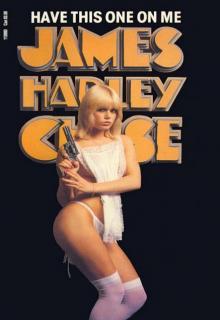 1967 - Have This One on Me
1967 - Have This One on Me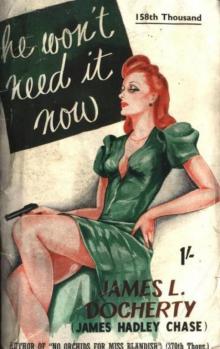 He Won't Need It Now
He Won't Need It Now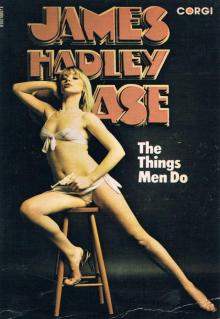 1953 - The Things Men Do
1953 - The Things Men Do Believed Violent
Believed Violent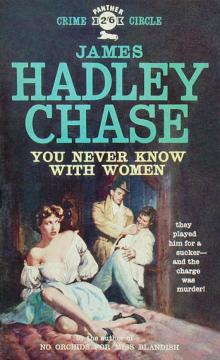 You Never Know With Women
You Never Know With Women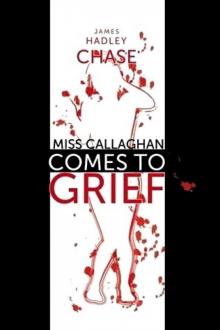 Miss Callaghan Comes to Grief
Miss Callaghan Comes to Grief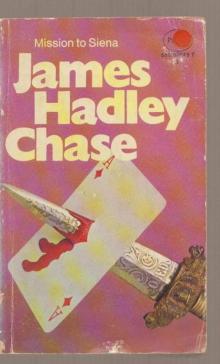 Mission to Siena
Mission to Siena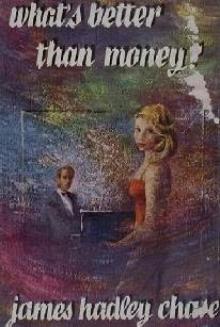 What's Better Than Money
What's Better Than Money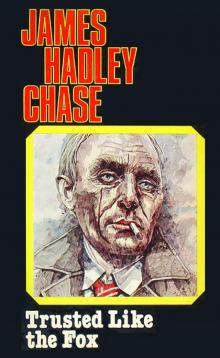 Trusted Like The Fox
Trusted Like The Fox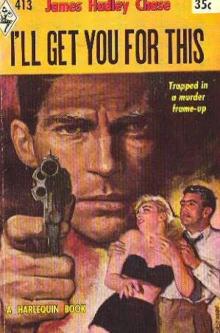 I'll Get You for This
I'll Get You for This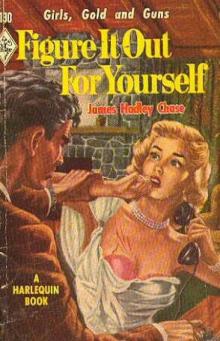 Figure It Out for Yourself vm-3
Figure It Out for Yourself vm-3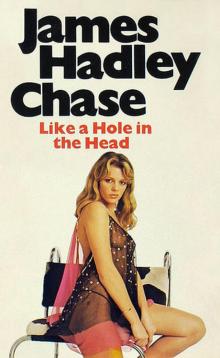 Like a Hole in the Head
Like a Hole in the Head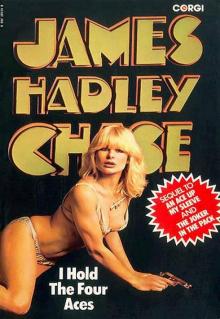 1977 - I Hold the Four Aces
1977 - I Hold the Four Aces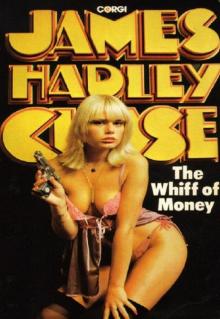 1969 - The Whiff of Money
1969 - The Whiff of Money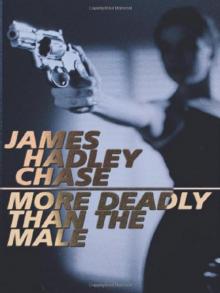 1946 - More Deadly than the Male
1946 - More Deadly than the Male 1956 - There's Always a Price Tag
1956 - There's Always a Price Tag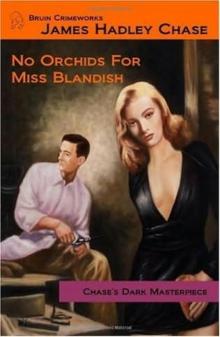 No Orchids for Miss Blandish
No Orchids for Miss Blandish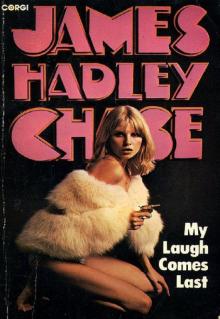 1977 - My Laugh Comes Last
1977 - My Laugh Comes Last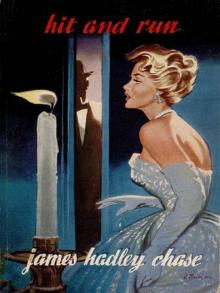 1958 - Hit and Run
1958 - Hit and Run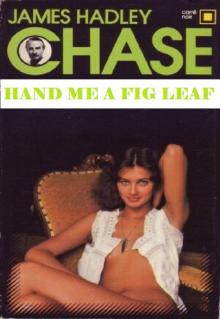 1981 - Hand Me a Fig Leaf
1981 - Hand Me a Fig Leaf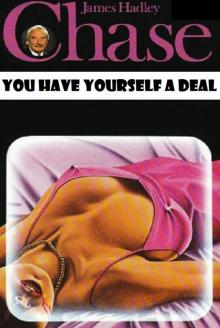 1966 - You Have Yourself a Deal
1966 - You Have Yourself a Deal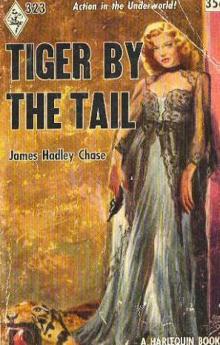 Tiger by the Tail
Tiger by the Tail